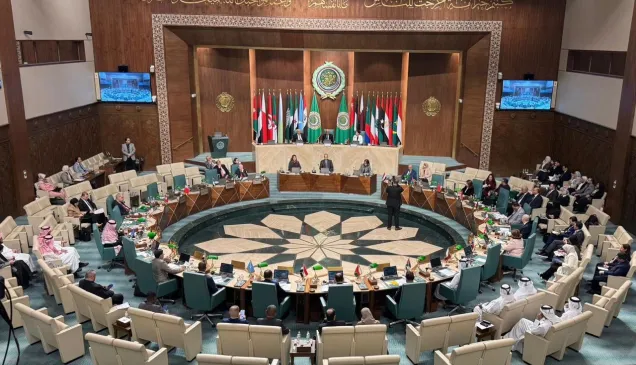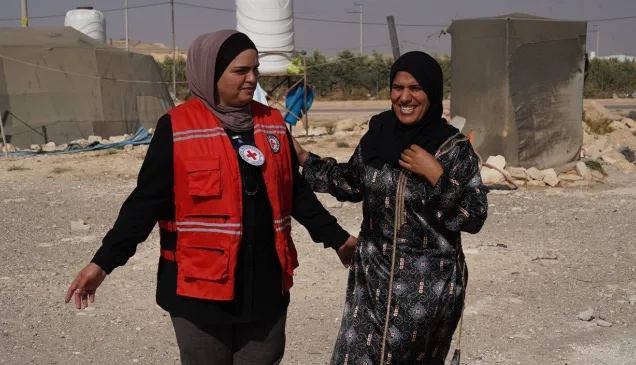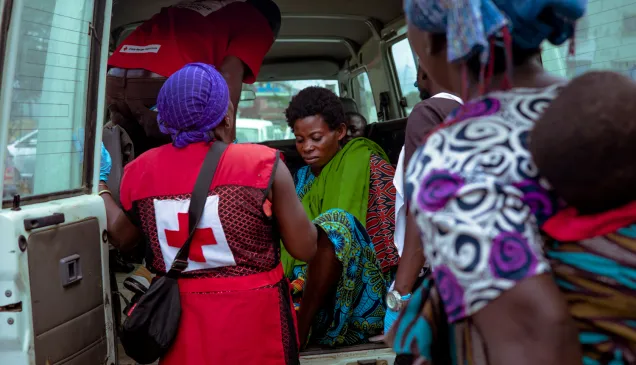Meeting of States Parties to the Convention on Certain Conventional Weapons, Statement of the ICRC, Geneva, November 2014
The Convention on Certain Conventional Weapons (CCW) is one of the key international instruments underpinning international efforts to protect civilians from weapons deemed to have indiscriminate effects and to spare combatants from excessively severe injuries that have no justifiable military purpose. The International Committee of the Red Cross (ICRC), therefore warmly welcomes the adherence of Iraq to this important treaty of international humanitarian law, and we continue to encourage States not yet party to join the Convention and all of its Protocols.
In addition to providing a framework to address the unacceptable human cost of certain conventional weapons in use today, the Convention also provides a framework to respond to issues raised by new developments in weapons technology -- the weapons of tomorrow. Both of these aspects of the CCW were evident in its work this year.
In particular, the ICRC commends the continuing efforts of States Parties to examine ways to address the concerns raised by explosive remnants of war (ERW) and improvised explosive devices (IEDs) -- conventional weapons that are having a deadly impact on civilians today in armed conflicts around the world. The ICRC believes that the universalization and full implementation of Amended Protocol II and Protocol V would significantly contribute to reducing the impact of these weapons, and we therefore encourage States Parties to intensify universalization and implementation efforts.
Like others, the ICRC is concerned about the use of incendiary weapons and the devastating harm that such weapons have on civilians when used in populated areas. We support the calls that have been made today for further work on this issue in the context of the CCW, including an examination of the adequacy and implementation of Protocol III.
Regarding the humanitarian concerns raised by anti-vehicle mines, the ICRC welcomes the study on the Humanitarian and Developmental Impact of Anti-Vehicle Mines published earlier this year by the Geneva International Centre for Humanitarian Demining and the Stockholm International Peace Research Institute. The study highlights the serious consequences that anti-vehicle mines have on civilian populations and the humanitarian organisations that work to assist them. As the ICRC has repeatedly stated in the past, new rules are needed to limit the indiscriminate effects of anti-vehicle mines, and we again urge CCW States Parties to consider work on this issue.
The discussions on autonomous weapons systems have demonstrated the important role that the Convention can play to address humanitarian concerns raised by new technologies of warfare. The ICRC welcomes the attention given to these systems by CCW States Parties, notably through their meeting of experts held in May. This meeting, together with those convened by the ICRC and UNIDIR in March, among others during the year, have helped to gain a better understanding of the legal, ethical, technical and operational issues that arise in relation to such systems. The full report of the ICRC's own Expert Meeting on Autonomous Weapon Systems has now been published.
The ICRC believes that autonomous weapon systems warrant continued attention and we urge States Parties to extend the CCW discussion mandate into 2015. In our view, the next phase of work should focus on how autonomy in weapon systems is developing, particularly with respect to the 'critical functions' of searching for, identifying, selecting and attacking targets. Discussions should focus on current or foreseeable weapon systems that are pushing the boundaries of human control over the critical functions of the weapons, and the legal and ethical issues involved, and avoid scenarios that are currently unrealistic.
The ICRC also believes that future CCW discussions on autonomous weapon systems should explore the notion of meaningful or appropriate levels of human control or judgement in relation to autonomous weapons systems. While there appears to be recognition that humans must retain ultimate control over any weapon system, more detailed deliberation is needed about what constitutes adequate, meaningful, or appropriate human control over the use of force. The CCW should provide a valuable forum to better understand this concept from a legal, technical and operational, as well as an ethical, perspective, and to help delineate where the boundaries lie.
In respect of any new weapon system – including existing weapons that are modified to increase autonomy in their critical functions – the ICRC recalls the crucial importance of carrying out legal reviews to ensure that the weapons can be used in accordance with international humanitarian law. CCW Meetings of States Parties and Review Conferences have in the past recalled the importance of legal reviews of new weapons, which are a legal requirement for States party to Additional Protocol I to the Geneva Conventions. In the context of forthcoming discussions on autonomous weapon systems, the ICRC strongly encourages States Parties to share, to the extent possible, their experience of legal reviews of weapons fitted with autonomous functions that are being studied, developed or acquired. This would significantly enrich the debates about autonomous weapon systems.
Finally, the ICRC remains deeply concerned about the use in populated areas of explosive weapons with a wide impact area. These weapons include large bombs or missiles, unguided indirect fire weapons including artillery and mortars, and weapon systems designed to deliver multiple munitions over a wide area. In recent and ongoing armed conflicts, the ICRC has continued to witness the devastating human cost of such weapons, in terms of incidental or indiscriminate death and injury of civilians and severe damage to critical civilian infrastructure. The ICRC considers that explosive weapons with a wide impact area should be avoided in densely populated areas due to the significant likelihood of indiscriminate effects and despite the absence of an express legal prohibition against specific types of weapons.
Recent and ongoing use of explosive weapons in populated areas have shown that there is an urgent need for the international community, including CCW States Parties, to pay closer attention to this problem. In the meantime, the ICRC encourages States to share information on their policies, operational practices and lessons learned on the use of explosive weapons in populated areas, as the UN Secretary-General has called for in his November 2013 Report on the Protection of Civilians in Armed Conflict.



